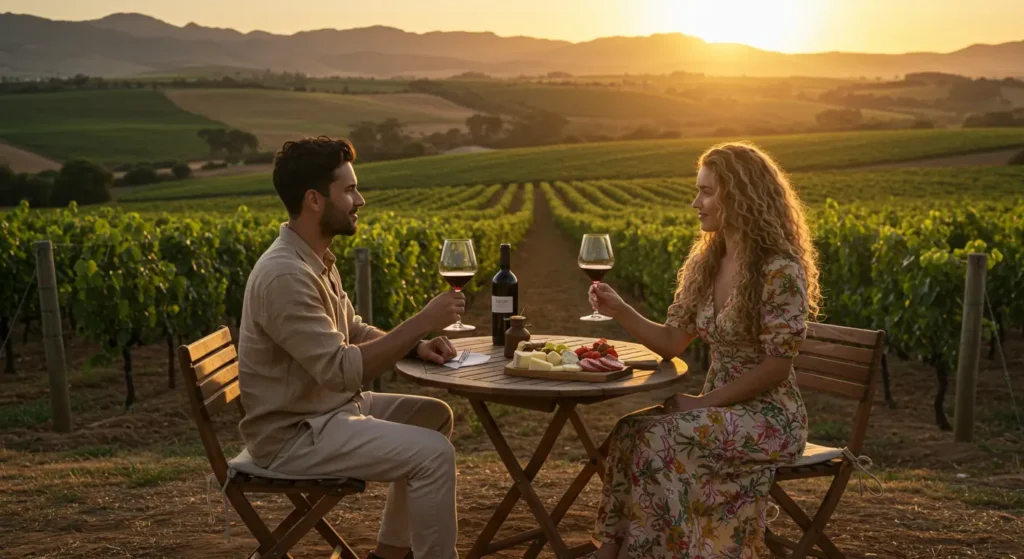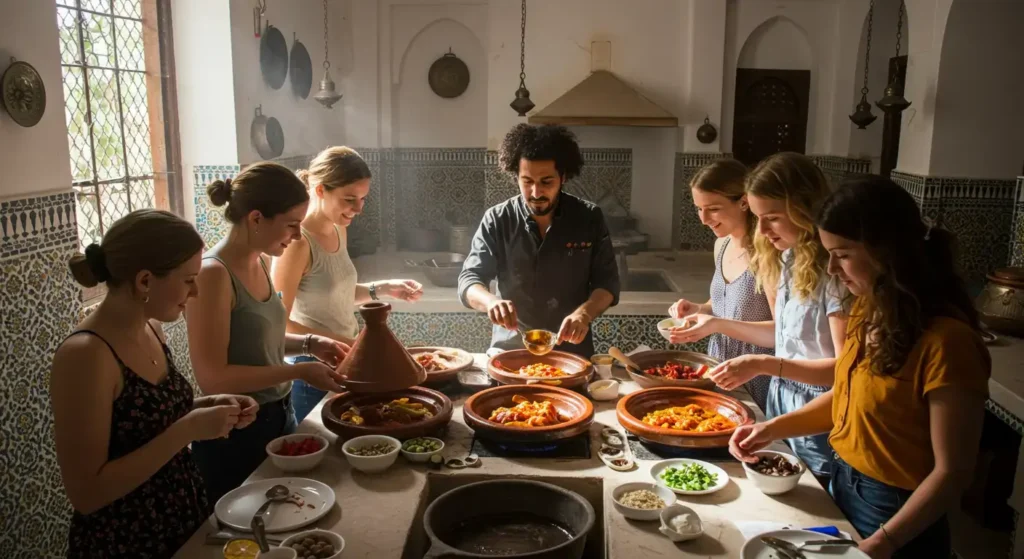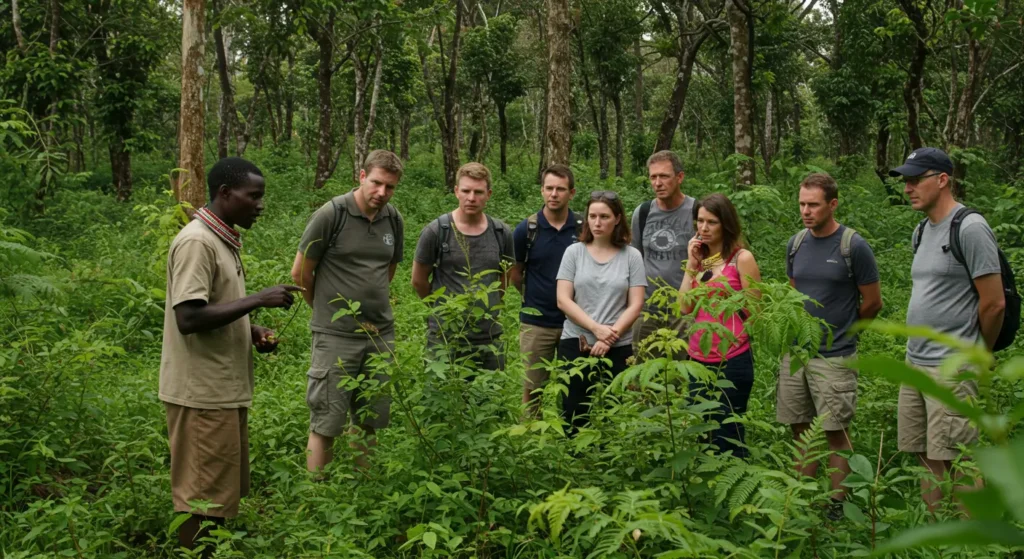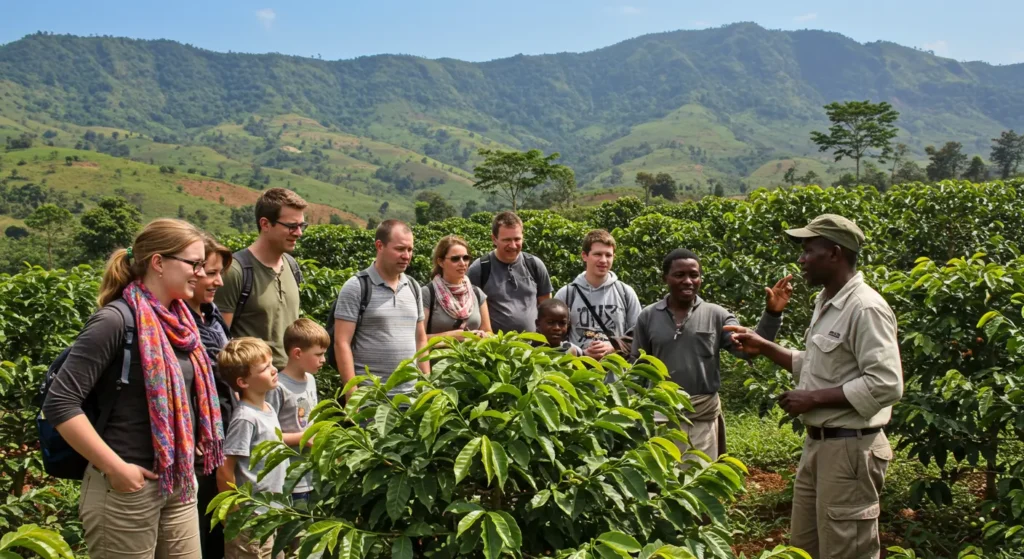Luxury Tastings in the Heart of Africa’s Vineyards
A New Chapter in African Luxury Travel
The golden sun dips behind rolling hills, casting long shadows over the neat rows of grapevines in Stellenbosch. In front of a historic Cape Dutch farmhouse, a sommelier pours a deep red Cabernet Sauvignon into tall crystal glasses. Around the table, international visitors savor the first sip, letting the earthy, fruity notes linger. For many, this is more than just wine tasting .it’s an introduction to wine tourism in South Africa, a travel experience that blends luxury, culture, and agriculture in one unforgettable journey.
South Africa is already famous for its safaris, beaches, and cityscapes, but vineyards are fast becoming the country’s new travel signature. Wine estates across Stellenbosch, Franschhoek, and Constantia are offering travelers not only tastings but full-scale luxury agritourism experiences gourmet farm-to-table dining, eco-lodge stays, and scenic vineyard tours.

Stellenbosch, Franschhoek, and Constantia: The Big Three
South Africa has dozens of wine-producing regions, but three stand above the rest as the core of its luxury wine tourism industry.
Stellenbosch, often referred to as the country’s “wine capital,” lies just an hour from Cape Town. Its reputation stretches back centuries, with estates that have perfected the craft of wine-making. Here, visitors can enjoy everything from high-end vineyard tours to gourmet dining experiences where dishes are paired with award-winning wines. Stellenbosch is also home to research institutions, making it a hub not only for tourism but also for agribusiness innovation.
Franschhoek, meaning “French Corner,” is celebrated as the food and wine capital of South Africa. Its French Huguenot heritage influences both its architecture and its wines, making it a unique blend of European elegance and African vibrancy. Travelers can hop on the Franschhoek Wine Tram, a charming experience that connects vineyards and allows visitors to sip, taste, and explore in style.
Finally, Constantia holds the title of being South Africa’s oldest wine region. Nestled at the foot of Table Mountain, it combines history with modern luxury. The area is known for its sweet Constantia dessert wines, once favored by European nobility, and today attracts a steady stream of wine enthusiasts seeking both heritage and exclusivity.
Together, these three regions create the backbone of wine tourism in South Africa, offering diverse experiences for every kind of traveler from casual wine lovers to high-net-worth individuals.
The Agribusiness Behind the Glass
For every bottle poured, there is a vast economic ecosystem at play. The South African wine industry contributes significantly to the country’s GDP, with more than 2,500 wine farmers and over 290,000 workers directly and indirectly employed in the sector.
Exports are equally important. South Africa ships more than 400 million liters of wine annually to international markets, with key buyers in the UK, Germany, the Netherlands, and increasingly, the US and Asia.
This economic backbone makes wine tourism a dual-force industry: it draws luxury travelers while strengthening agribusiness. Visitors to South Africa’s vineyards aren’t just indulging; they are investing in local economies, creating jobs, and sustaining rural communities.
Moreover, the industry has become a platform for sustainability and inclusivity. Many vineyards are now Black Economic Empowerment (BEE)-owned, ensuring that historically disadvantaged communities share in the benefits of agritourism growth.

Luxury Experiences Beyond the Vineyard
What sets wine tourism in South Africa apart from other global wine destinations such as Napa Valley or Tuscany is the variety of experiences available beyond the tasting rooms.
- Farm-to-Table Dining: Many vineyards host restaurants where chefs create gourmet meals from locally sourced ingredients, paired with estate-produced wines. This farm-to-table experience is increasingly popular among eco-conscious tourists.
- Eco-Lodge and Boutique Stays: Wine estates now offer high-end accommodations, from boutique guesthouses to luxury eco-lodges. Waking up to vineyard views has become a travel highlight for many international visitors.
- Wine Trails and Adventure Tourism: Cycling and hiking routes now connect different estates, allowing active tourists to combine outdoor exploration with tastings. The Franschhoek Wine Tram is also an iconic experience that merges travel convenience with scenic adventure.
- Events and Festivals: Harvest festivals, live concerts, and wine auctions have added a cultural layer to wine tourism. These events attract not just tourists but also investors and collectors.
By diversifying beyond tastings, South Africa’s wine regions are positioning themselves as holistic luxury travel destinations.

Sustainability: The Future of Wine Tourism
Modern travelers want experiences that are meaningful, not just enjoyable. South Africa’s wine industry is responding by embracing sustainable practices.
Many estates now use solar energy to power their operations, recycle water to counter drought, and focus on organic farming methods. Some have even introduced conservation projects, protecting local flora and fauna alongside vineyard development.
These green initiatives are not only good for the environment but also attract higher-value tourists those who are willing to pay more for responsible, eco-friendly experiences.
With climate change threatening traditional wine regions across Europe, South Africa is emerging as a resilient, forward-looking wine producer. That resilience makes its vineyards more than tourist attractions they are models of sustainability.
From the US to Germany, from Dubai to Singapore, wine tourism in South Africa appeals to affluent global audiences. These travelers are not just looking for vacations; they are looking for luxury experiences with cultural depth.
Why Wine Tourism is Africa’s Next Big Luxury Story
Wine tourism in South Africa is about more than sipping fine vintages. It’s about:
- Exploring the intersection of luxury travel and agribusiness.
- Supporting local economies and sustainable practices.
- Experiencing Africa beyond the traditional safari narrative.
As more travelers seek unique experiences, and as Africa rebrands itself in global tourism, wine is emerging as the unexpected star. From the historic estates of Constantia to the gourmet streets of Franschhoek, wine tourism is rewriting South Africa’s identity on the global stage.





